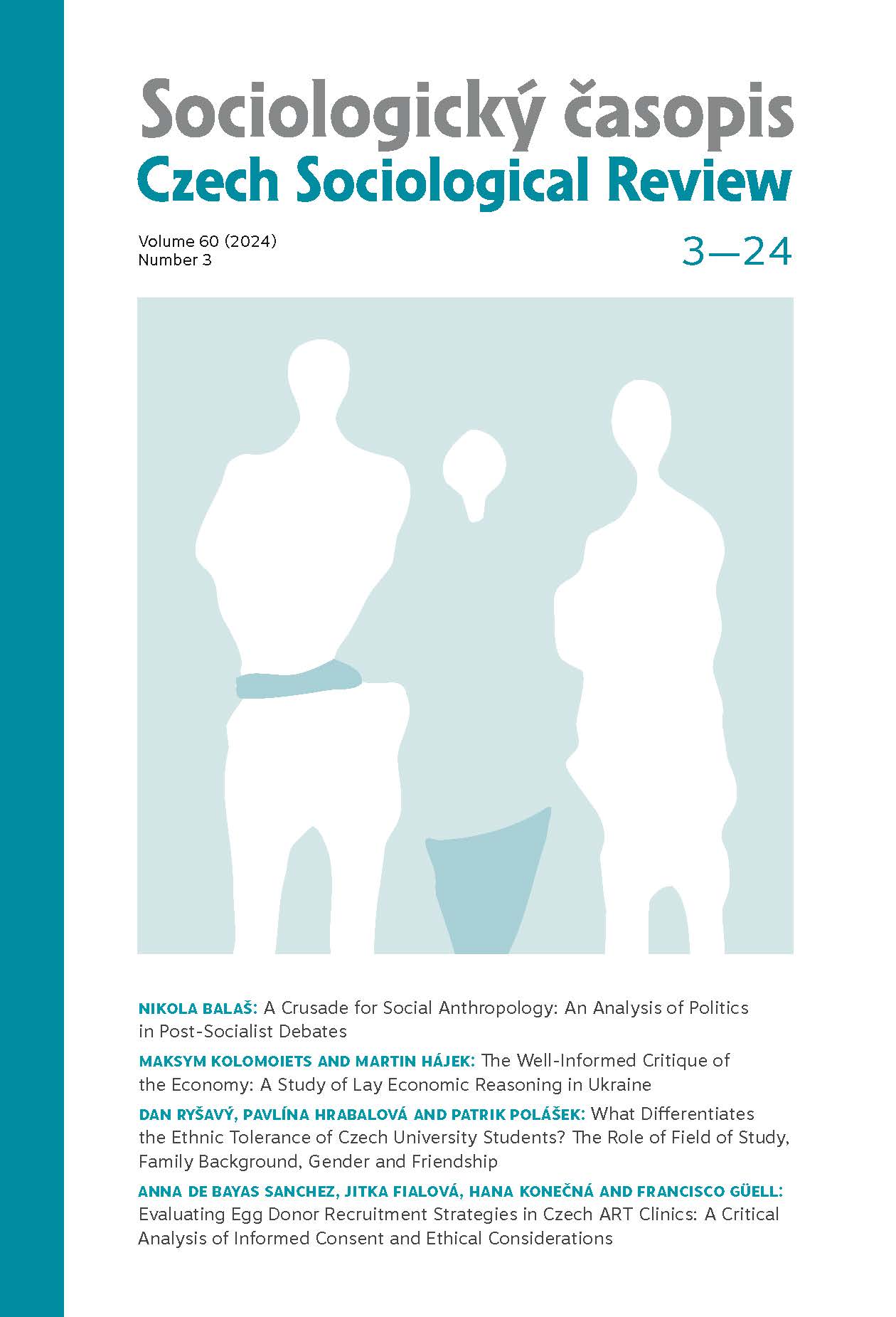What Differentiates the Ethnic Tolerance of Czech University Students? The Role of Field of Study, Family Background, Gender and Friendship
What Differentiates the Ethnic Tolerance of Czech University Students? The Role of Field of Study, Family Background, Gender and Friendship
Author(s): Dan Ryšavý, Pavlína Hrabalová, Patrik PolášekSubject(s): Gender Studies, Social psychology and group interaction, Methodology and research technology, Sociology of Culture, Ethnic Minorities Studies, Sociology of Education
Published by: AV ČR - Akademie věd České republiky - Sociologický ústav
Keywords: Bogardus; social distance; ethnic tolerance; university students; fields of study
Summary/Abstract: Working in the context of a rather ethnically homogeneous country, this study examines what differentiates the social distance of university students towards Arab, Ukrainian, Vietnamese and Roma populations. The hitherto neglected effect of the field of study is also of special concern. The authors analysed the results of a large online survey of 3,912 Palacký University students in the Czech Republic. Inspired by Bogardus’s social distance scale, we ascertained a significantly greater acceptability of Ukrainians and Vietnamese, on the one hand, and a higher distance towards Arabs and the Roma, on the other hand. Neither the liberalising influence of higher education nor the increased number of students in tertiary education affected the level of ethnic tolerance. With the exception of attitudes towards Roma people, male students and students whose mothers graduated from high school expressed a lower social distance. The research confirmed the contact theory, including the secondary transfer effect hypothesis. Even when controlling for other variables, students in the humanities and social sciences expressed the highest degree of ethnic tolerance. The question remains as to whether greater social distance among health science students and physical culture can contribute to the reproduction of prejudices in the field of health services or leisure sports activities.
Journal: Sociologický časopis / Czech Sociological Review
- Issue Year: 60/2024
- Issue No: 3
- Page Range: 295-320
- Page Count: 26
- Language: English

